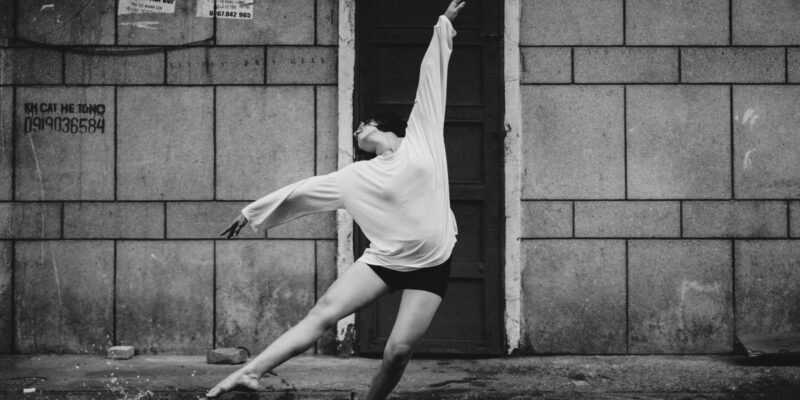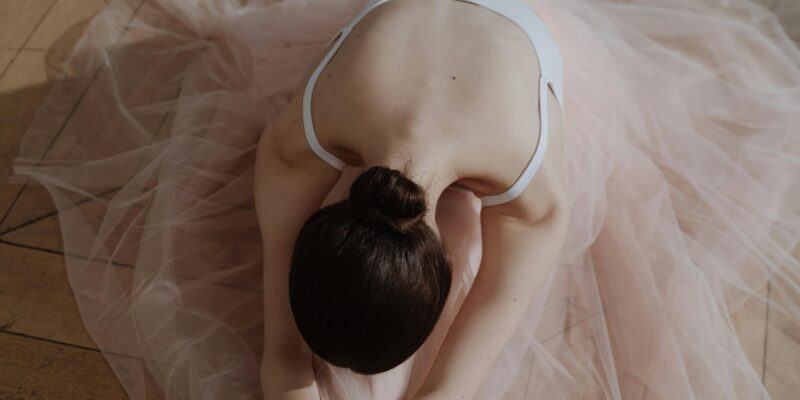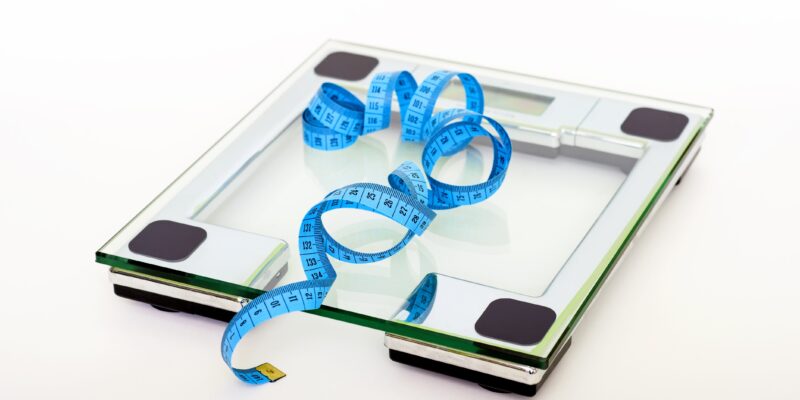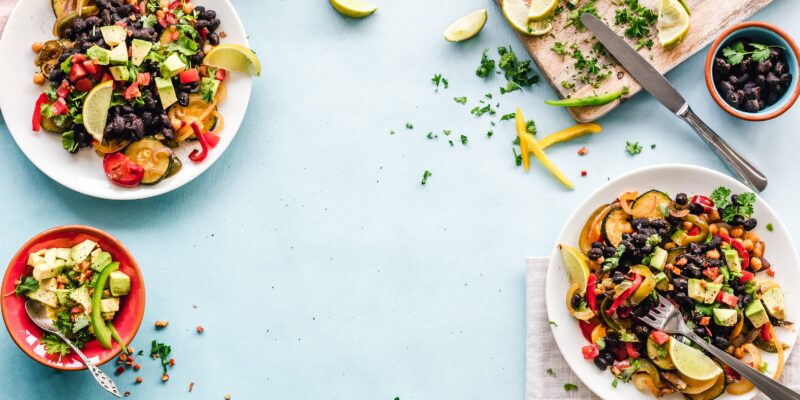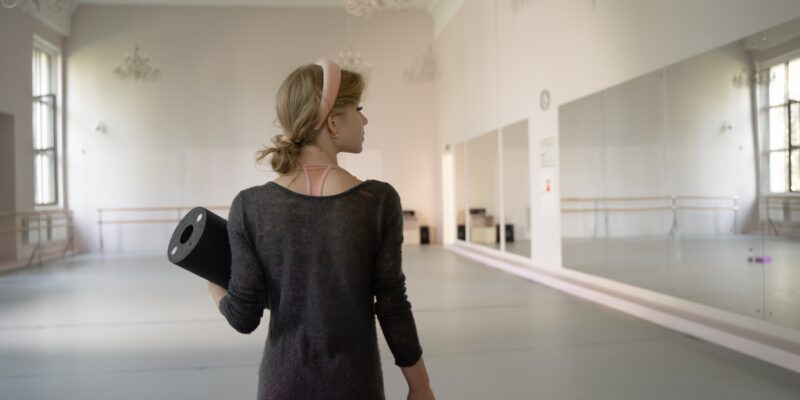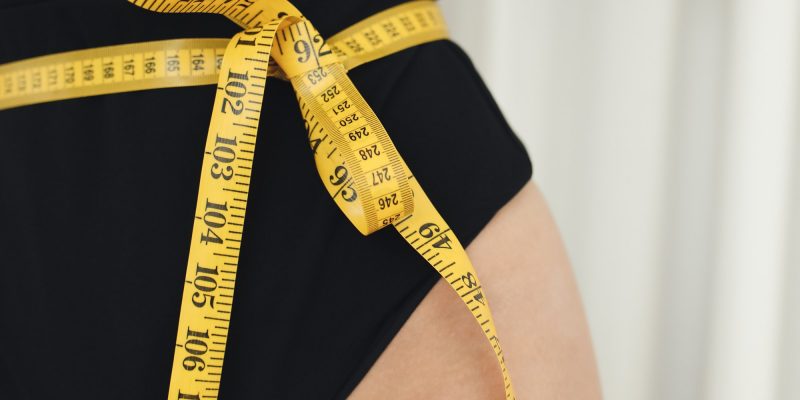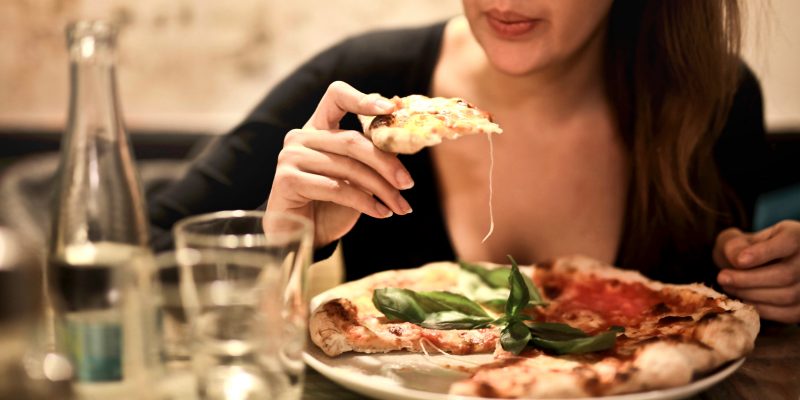The voice of diet culture is loud in January. The idea is that if we meet our “best body” or master the perfect extension, everything will fall into place. But here’s the reality check: This cycle of unrealistic, quick-fix resolutions is not sustainable. How do we set ourselves up for success this year? Let’s start by swapping out the pressure-filled resolutions for habits that work in real life.
Read More...Set Healthy Boundaries Against Dancer Diet Culture
Setting boundaries is essential for safeguarding our mental and emotional well-being, especially when it comes to our relationship with food. In a world dominated by diet culture, boundaries often get blurred or ignored. In this article, we’ll dive into what it means to set boundaries and why your self-worth plays a crucial role in your ability to protect yourself from the harmful effects of dancer diet culture.
Read More...The Truth About Food Addiction
Do you feel like you’re always thinking about your next meal? Do thoughts about what you “should” and “shouldn’t” eat play on repeat in your mind? Or, perhaps, it’s your fear of “once I start I’ll never stop!” In this article, we’re unraveling food addiction.
Read More...Journaling for Dancers: Getting Started
Guided journaling is fundamental to The Healthy Dancer®, particularly in understanding how our bodies respond to different foods (and our relationship with food). But with so many types of journals, it’s tricky knowing which can be right for you. In this blog post, we’ll explore two guided journaling practices I utilize with dancers and how each can support you.
Read More...How to compliment a dancer
Complimenting a dancer on their body’s weight, shape, or size not only reinforces harmful stereotypes but also, reduces a dancer’s worth to their weight. This undermines the years of training and hard work invested. In this blog post, we delve into why it is crucial to refrain from complimenting a dancer on their weight.
Read More...Weight Loss for Dancers
A dancer’s desire to lose weight is the reality of an industry saturated with aesthetic ideals. But here’s the deal: as a clinician, it’s my ethical duty to educate dancers about the hard facts of not only dieting, but also, systemic fatphobia. Therefore, weight loss isn’t a priority for The Healthy Dancer®. Now, despite weight loss not being a priority for The Healthy Dancer®, it could be a symptom as you build a supportive relationship with food.
Read More...Dancers and Food Rules: A Guide to Breaking Free
For dancers especially, maintaining supportive mealtime habits means breaking free from these strict food rules as part of a larger initiative to dismantle dancer diet culture and make peace with food (the first two fundamental values of The Healthy Dancer®. This blog post aims to explore the origins of food rules and offers practical strategies for dancers to break free from restrictive food rules.
Read More...Understanding Hunger: Your Cues to Eat
What happens when you ignore hunger cues? Learning how to reconnect with your innate feelings of hunger (and fullness), is an important component to a balanced lifestyle. Though not always practical, especially if you’re recovering from a history of eating disorders or simply navigating a hectic schedule, listening to your body’s mealtime cues is a critical skill. Therefore, let’s discuss 3 ways to reconnect with your innate hunger and fullness.
Read More...Dancers and Perfectionism: Tackle An All-or-Nothing Mindset
With body ideals at the forefront of the industry, dancers are especially vulnerable to perfectionistic behaviors surrounding both food and body. High expectations and striving to perfect the imperfect create an environment prone to obsessive tendencies and comparative behaviors. As a recovering perfectionist, I’ve learned to utilize a proactive effort to shift superhuman ideals into sustainable (and realistic) goals. For this blog post, I’ve teamed up with licensed psychotherapist Amy Pope-Lantham to explore five strategies that can help dancers tackle the all-or-nothing mindset and find a healthier balance in their dance journey.
Read More...How to support a friend through disordered eating
When you suspect that a dance friend is struggling with disordered eating or an eating disorder, it can be challenging to know how to offer effective support. Fears of “saying the wrong thing” leaves many dancers at a loss for words. And while the conversation is one to tread lightly, avoidance can drive even the closest of friends further apart. If you suspect a dance friend is struggling with disordered eating or an eating disorder, here’s what to do.
Read More...Comparisons in dance: your ultimate guide
Comparisons in the studio are, unfortunately, a common obstacle facing many dancers. Constantly comparing their skills, progress, and achievements to fellow dance peers— it can feel like an uphill battle for dancers to not compare themselves to others. This mindset isn’t just detrimental to a dancer’s self-esteem, it can also impede their creativity and overall performance potential. In this article, we explore why dancers are vulnerable to the comparative mindset, along with practical strategies to overcome it. The goal is to not strive for what feels impossible, but rather, to foster productive behaviors and a more fulfilling experience both in the studio and at mealtimes.
Read More...A Dancer’s Guide to Stress, Fatigue, & Overwhelm
It’s common for dancers to find themselves exhausted mentally, physically, and emotionally. Balancing a packed dance schedule with academic coursework is hard enough. Chronic fatigue can be detrimental to your health, well-being, and your ability to perform to your greatest potential. While a dancer’s schedule is notoriously difficult to manage, you owe it to your mind, body, and soul to find moments to breathe.
Read More...How To Stop Feeling Guilty After Eating- Overcoming Food Guilt
There was a time in my life when I avoided dessert because I believed, “the guilt just wasn’t worth the bite.” My food guilt was so severe that thoughts about eating the bag of M&Ms consumed me for DAYS after eating them. And while this mental parade of guilt was exhausting, it always made its way into my brain, especially after another bout of “failed willpower” from an otherwise “clean” diet. But in my pursuit away from restrictive eating behaviors I overcame this food guilt, and today, I’m going to teach you how to do the same.
Read More...Dancers & Disordered Eating
Has your interest in healthy eating become more of an obsession? Dancers are at risk to perfectionism, which can drive rates of disordered eating and eating disorders. Orthorexia describes the unhealthy obsession with healthy eating. Learn more about orthorexia and disordered eating among dancers.
Read More...Dancers, Fear of Weight Gain isn’t helping
During a layoff or time spent not dancing, it is possible that you’ll gain weight. It’s also possible that you’ll lose weight and maybe even maintain your weight. If you’re coming from a place of extreme food restriction, it’s likely that you’ll experience weight gain upon healing your relationship with food. Coming to terms with a few truths is often part of the puzzle. Here are 10+ truths about dancer weight gain.
Read More...The Healthy Dancer® Review: What Tiny Pretty Things Gets Right
As a nutritionist for dancers, my work goes far beyond meal plans and portion guides. It’s about advocating for a healthier, more sustainable dance world— one where artistry isn’t sacrificed for body image, and well-being is prioritized alongside technique. I’ve made it my mission to help shift our industry away from outdated, harmful standards. So naturally, I was apprehensive when I hit “play” on Tiny Pretty Things. Here’s my review of the Netflix drama.
Read More...Reintroduce Trigger Foods
Most “Type A” dancers have something in common when it comes to his or her relationship with food. Especially for those with a sparked interest in nutrition: Type A dancers love sticking to safe foods. Often times, these are highly nutritious, plant-based, and minimally processed (like the ones I mentioned above).
Read More...
